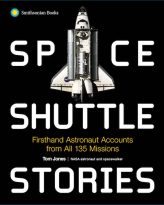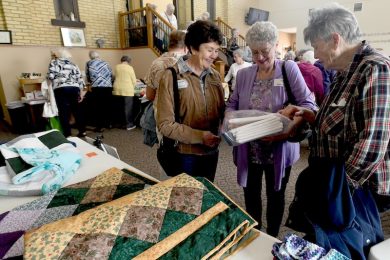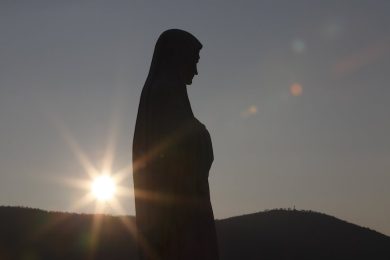By Cecilia Cicone
“Space Shuttle Stories: Firsthand Astronaut Accounts from All 135 Missions”
Tom Jones, Smithsonian Books (2023)
320 pages, $35
Between 1981 and 2011, astronauts suited up and entered a reusable spaceship 135 times, blasting off out of earth’s atmosphere with the hope that they would have a safe mission before returning to return to their families. In his latest book, veteran NASA astronaut Tom Jones brings us stories from each of these missions, giving readers a front row seat into what it’s like to live an orbit-centered life.

“Space Shuttle Stories” gives a narrative of each shuttle mission in impressive detail; it lists its crew members and objectives and then includes a story related by one of the flight’s astronauts. Ending each story with photos of that crew’s journey, the book essentially brings us the history of the space shuttle as a whole.
The book flows easily from one mission to the next, presenting readers with a holistic depiction of each adventure and fitting them within the broader scope of the space shuttle program. We begin by reading of the simple experimental flights — needed to insure the space shuttle functioned correctly — then to the scientific missions, space walks, geological studies and even medical experiments undertaken by the flight team, with commercial missions and classified missions on behalf of the Department of Defense spread out in between.
Each story is unique and gives insight into the space program that the average civilian may not have considered, such as how to transport jellyfish into space for an experiment or the need to duct tape an astronaut to the wall when he’s sleeping and his sleeping bag comes loose.
This intimate look into the space shuttle program is marked by a particular kind of joy — these astronauts all seem to be natural teachers who want readers to understand what they learned while in space, and how they learned it. Poignantly, throughout the book astronauts mention the experience of looking at the earth from space. Many call the experience indescribable, while others recount humbly wondering at how small humanity is within the scope of the universe, being moved to spontaneously give glory to God as Creator.
While most of the stories shared in the pages of “Space Shuttle Stories” are light, two dark clouds hover over the program’s history in the form of the Challenger and Columbia disasters. Just as the space shuttle program was hitting its stride, the Challenger tragedy bred great distrust of NASA’s commitment to safety as it flew nearly constant missions. And yet, many astronauts recounted in their stories the desire to not let the deaths of the two ships’ crew members be in vain — they wanted to learn from the disaster, vowing never to let it happen again. Their future missions would honor crews lost to orbital space exploration and seek to find the answers they were pursuing when they lost their lives.
In an era of seemingly inexhaustible scientific knowledge, the stories from both tragic and successful space shuttle missions — told by these astronaut-scientists themselves, expose just how little we actually know about our planet. And yet, time after time, this is something that moves them not to fear, but to wonder and awe as they behold the beauty that is creation.
Wonder and awe are gifts of the Holy Spirit, given to us to propel us more deeply into the mystery that is the Holy Trinity as we learn to treasure and appreciate all that God has done and is doing in our lives.
In the not-too-distant future, readers of “Space Shuttle Stories” may have the opportunity to travel to space themselves. This book, full of practical and fascinating details, reminds us that such travel can be yet another way to grow closer to God through the gift of wonder, for any explorer who is open to it.
– – –
Cecilia Cicone is an author and communicator who works in diocesan ministry in Northwest Indiana.






















